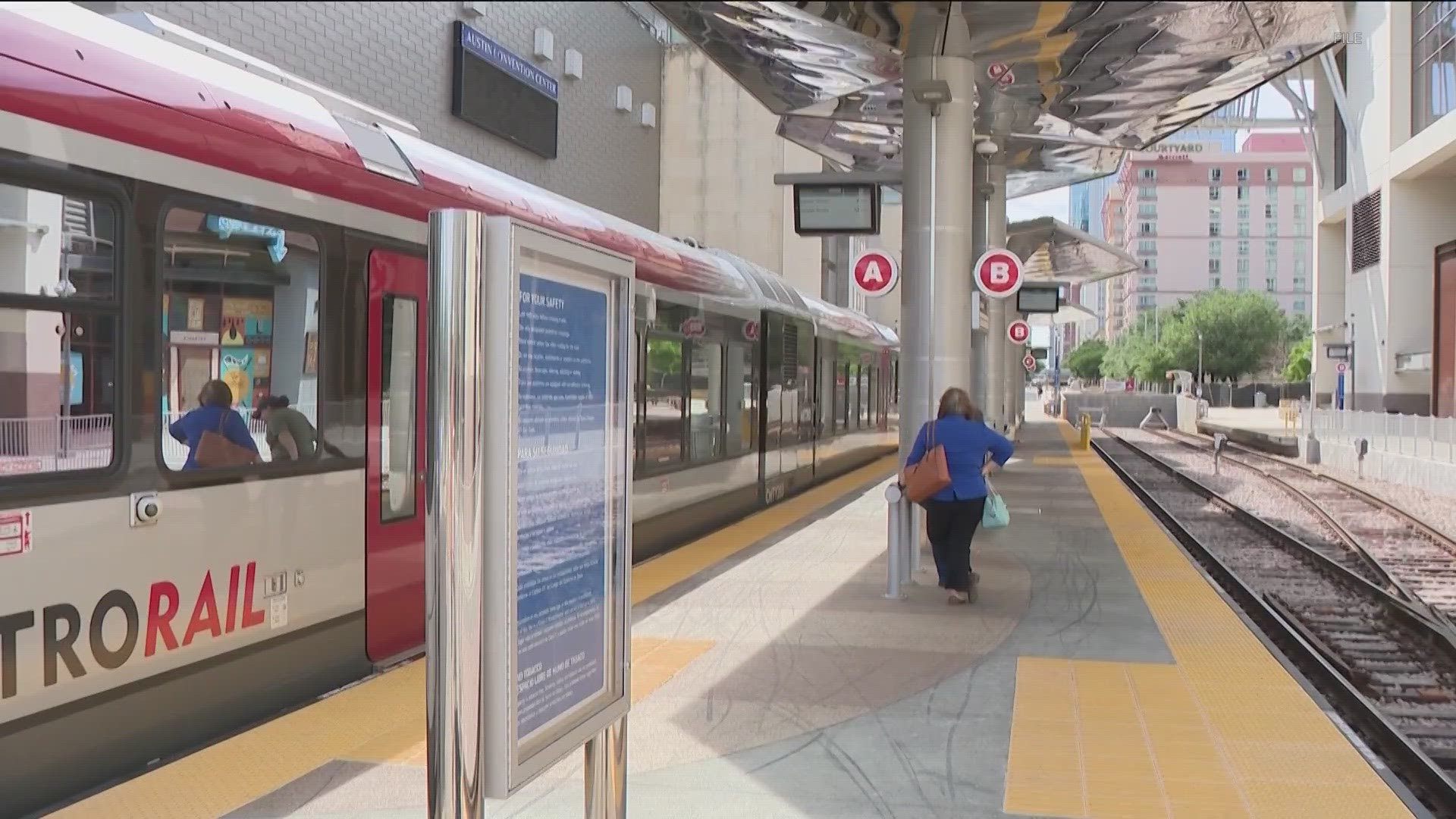AUSTIN, Texas — Texas Attorney General Ken Paxton has issued an opinion questioning the tax funding for Austin’s Project Connect.
Project Connect is Austin’s high-capacity transit system expansion, which includes light rail lines, a downtown subway, an expanded bus system and park-and-rides.
As first presented to voters in November 2020, it would cost $5.8 million. But costs for the project skyrocketed by more than 60%, and it is now estimated to cost $11.6 billion.
Now, some lawmakers are questioning ongoing funding for the project.
In an opinion issued Saturday, Paxton said he does not believe the Texas Tax Code authorizes municipalities to “earmark” use of a voter-approved increase in its maintenance and operation property tax revenue to debt service.
“Barring express statutory authority, maintenance and operations tax revenue must be used for ‘[m]aintenance and operations’ as defined by statute, which expressly excludes debt service as defined by subsection 26.012(8),” Paxton wrote.
Paxton’s opinion also addressed the City of Austin’s use of the Austin Transit Partnership, the agency in charge of implementing Project Connect that is funded by the increased tax revenue.
The funding model for the Austin Transit Partnership relies on issuing debt and then paying it down with the tax revenue. Restricting access to debt would cause a delay in the project and, possibly, end it.
Paxton said he believes the agency's tax structure is prohibited under the Texas Constitution because Project Connect tax revenues are committed beyond the annual appropriation period, “until such times as all debt issued and financial obligations incurred by Austin Transit Partnership are paid off.”
Paxton’s opinion is a non-binding interpretation of the law. But Project Connect’s funding has come under scrutiny in the Texas Legislature as well.
House Bill 3899, dubbed the “No Blank Checks Act,” would require voter approval before furthering debt for projects such as Project Connect. That bill has passed the House and made its way to the Senate.
If the bill passes and becomes law, Austinites would vote on Project Connect again later this year, where the outcome would determine whether voters would allow further debt for the transportation project. If voters say yes to taking on a certain amount of more debt, the project moves forward. This process would repeat if the City wanted to add another round of additional debt for Project Connect.
The Austin Transit Partnership has said it is committed to scaling back the project to reach initial cost estimates.
A scaled-down version of the project will be presented at the group’s May 24 meeting, with an official decision expected on June 6.

